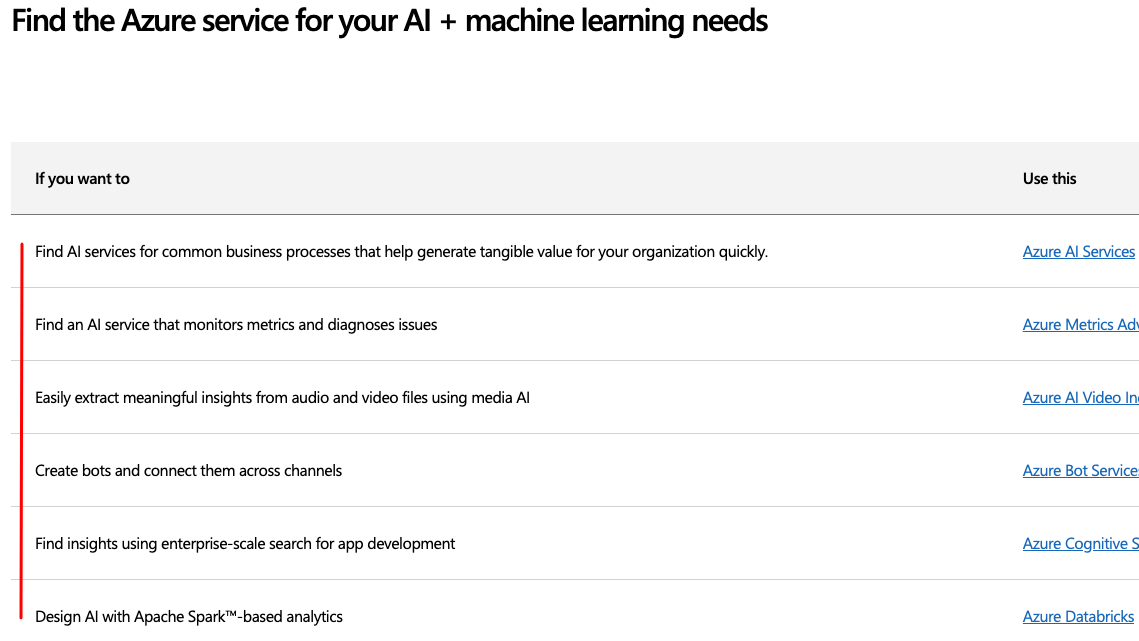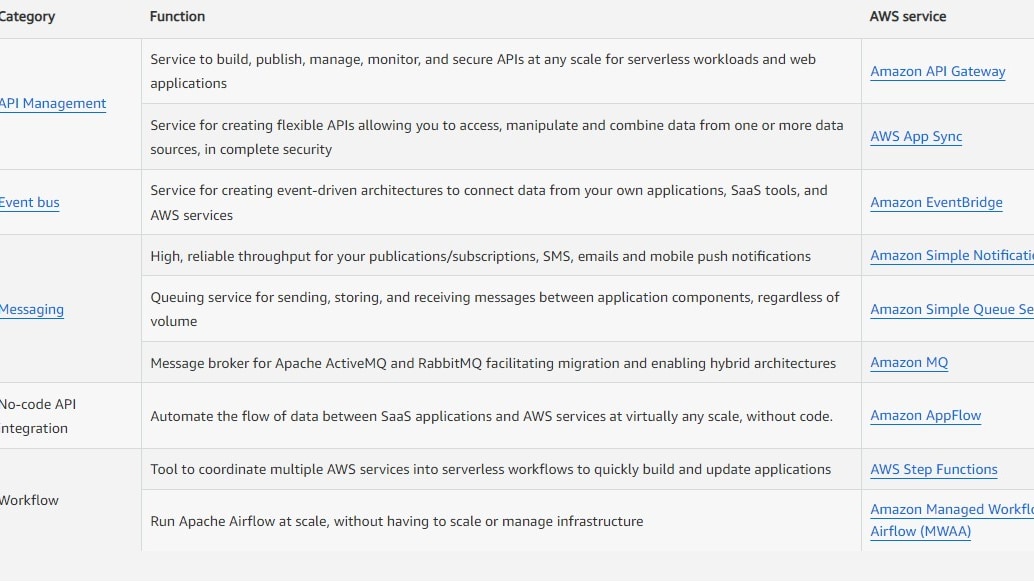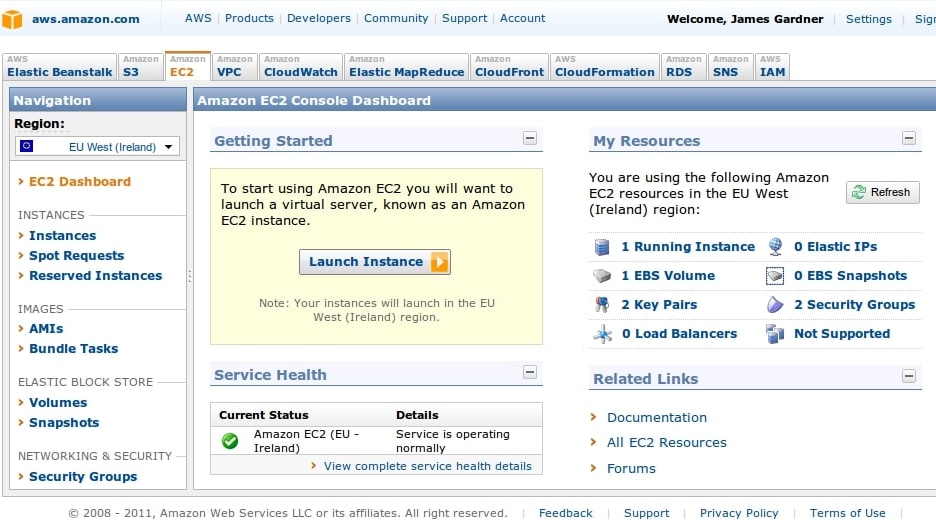Azure vs AWS: Choosing the right software for your business
- 01Microsoft Azure vs AWS Activate: overview
- 02What's the difference between Microsoft Azure and AWS Activate?
- 03Microsoft Azure pros and cons
- 04AWS Activate pros and cons
- 05Microsoft Azure compared to AWS Activate
- 06AWS Activate compared to Microsoft Azure
- 07Features comparison
- 08Microsoft Azure vs AWS Activate: Which is the best for your business?
- 09Promotions on Cloud Computing software
- 10Alternatives to Microsoft Azure & AWS Activate
Access up to $25,000 savings on Microsoft Azure & $300,000 on AWS Activate
Access up to $25,000 savings on Microsoft Azure & $300,000 on AWS Activate
Cloud computing platforms offer organizations the freedom to innovate technological solutions to suit their unique business needs, including security, AI and machine learning, and storage. Moreover, these tools are crucial to an organization’s long-term scalability and agility. So choosing the best one for your business can feel like a daunting task.
To help you out, we’ve compiled an in-depth comparison of two of the largest providers, Microsoft Azure and Amazon Web Services (AWS). In this Azure vs AWS showdown, we step you through their shared and different features and their pros and cons to help you find the one that suits your business.
Microsoft Azure vs AWS Activate: overview
Microsoft Azure and AWS are dominant forces in the world of cloud computing and infrastructure services. These industry giants offer a vast array of features and solutions, making it a daunting task to determine which one holds the upper hand in the Microsoft Azure vs AWS competition.
To assist you in making an educated choice for your business's cloud needs, we've meticulously crafted a comprehensive comparison table outlining the pivotal attributes of each cloud platform. Each criterion is meticulously appraised through a star-based rating system, accompanied by insightful commentary, aiming to simplify your evaluation of the table below.
What's the difference between Microsoft Azure and AWS Activate?


Azure and AWS are two leaders in the cloud computing services industry. Azure offers four forms of cloud computing, including infrastructure as a service, platform as a service, software as a service, and sever-less functions. Designed and maintained by Microsoft, Azure is often the first choice of exiting Microsoft users. AWS offers a range of solutions catering to various industries, including the financial services, government, and retail sectors. AWS has also been around for longer and, as a result, holds a larger market share.
While the two platforms’ product offerings are broadly similar, the way they provide them varies. For example, Azure and AWS use different methods of creating private networks for users. AWS uses a virtual private cloud (VPC), a form of hybrid cloud deployment. This private cloud is stored in isolation within a public cloud. In comparison, Azure uses a virtual private network (VPN), creating a secure connection to another network, giving Azure complete oversight. There is also a significant difference between Azure and AWS’s machine learning products. To fully optimize AWS’s advanced AI products, you ideally need some level of coding skills. On the other hand, Azure focuses on providing users with a codeless or almost codeless experience when using its AI products.
Another difference is that Azure’s security permissions apply to your entire account. Compared to Azure, AWS permissions are role-based. The platforms also offer different cloud storage services catering to various user needs. Azure has Blob Storage, Data Box, and Container Storage. AWS provides Elastic Block Storage, Simple Storage Service (S3), and Snow Family. Finally, it’s worth noting that while both platforms support hybrid cloud solutions that combine elements of public and private cloud and physical deployments, Azure has a stronger focus on and reputation for them.

$25,000 in Azure Cloud credits for 1 year on Microsoft Azure
Get $25,000 in Azure Cloud credits for 1 year on Microsoft Azure and up to $25,000 savings with Secret.
Microsoft Azure pros and cons
What are the advantages of Microsoft Azure?
- Broad service offering: Microsoft Azure provides a wide range of cloud services, including computing, storage, networking, databases, analytics, AI, and more. This comprehensive suite allows businesses to choose and customize the services that best fit their needs.
- Hybrid capabilities: Azure offers seamless integration between on-premises infrastructure and cloud resources, making it easier for businesses to adopt a hybrid cloud approach. This is particularly beneficial for organizations with existing investments in on-premises solutions.
- Enterprise integration: Azure's strong integration with Microsoft products like Windows Server, Active Directory, and Office 365 is advantageous for businesses already utilizing these tools. It provides a consistent and familiar environment for users.
- Global presence: Azure has an extensive network of data centers worldwide, enabling businesses to deploy applications and services closer to their target audience, resulting in lower latency and improved user experience.
- Scalability and flexibility: Azure's pay-as-you-go pricing model allows businesses to scale their resources up or down based on demand. This flexibility helps optimize costs and adapt to changing business needs.
What are the disadvantages of Microsoft Azure?
- Complexity: The extensive range of services and configuration options in Azure can lead to complexity, especially for newcomers. Setting up and managing resources may require a learning curve.
- Cost management: While Azure's pay-as-you-go model is flexible, it can also lead to unpredictable costs if resources are not managed properly. Without proper monitoring and optimization, expenses can escalate.
- Documentation and support: Some users have found Azure's documentation to be extensive but occasionally challenging to navigate. Additionally, support response times may vary based on the subscription tier.
- Learning curve: The wide array of services and frequent updates can make it challenging for IT teams to stay up to date with Azure's offerings, potentially requiring ongoing training and skill development.
- Vendor lock-in: Like other cloud providers, Azure's ecosystem and proprietary tools may lead to some degree of vendor lock-in. Migrating away from Azure might involve complexities in transitioning applications and data.
Compare Microsoft Azure to other tools
AWS Activate pros and cons
What are the advantages of AWS Activate?
- Broad service portfolio: AWS offers a vast array of cloud services, ranging from computing and storage to machine learning and analytics. This comprehensive suite allows businesses to choose and configure services tailored to their specific needs.
- Global infrastructure: AWS has an extensive network of data centers located across the world. This global presence enables businesses to deploy applications and services in multiple regions, enhancing performance and reliability.
- Scalability and elasticity: AWS provides the ability to easily scale resources up or down based on demand. This elasticity allows businesses to quickly respond to changes in traffic and workload, optimizing costs and performance.
- Security and compliance: AWS offers robust security features, including data encryption, identity and access management, and compliance certifications. These measures help businesses meet industry-specific security standards and protect sensitive data.
- Ecosystem and community: AWS has a large and active user community, along with a rich ecosystem of third-party tools and services. This community-driven environment facilitates knowledge sharing, troubleshooting, and innovation.
What are the disadvantages of AWS Activate?
- Complexity: The sheer breadth of AWS services can lead to complexity, especially for new users. The abundance of options and configurations may require a learning curve and careful planning to avoid unnecessary complexity.
- Cost management: While AWS provides a pay-as-you-go model, cost management can become challenging if resources are not carefully monitored and optimized. Oversights in provisioning and utilization can lead to unexpected expenses.
- Support costs: AWS offers multiple support plans, but more advanced support tiers come at an additional cost. Depending on the level of support needed, these costs can add up and impact the overall budget.
- Vendor lock-in: As with any cloud provider, AWS's proprietary tools and services can lead to vendor lock-in. Migrating away from AWS may require significant effort and potentially involve adapting applications to different cloud platforms.
- Documentation navigation: While AWS documentation is extensive, some users may find it overwhelming or challenging to navigate, particularly when dealing with complex configurations or less commonly used services.
Compare AWS Activate to other tools
Microsoft Azure compared to AWS Activate
When comparing Microsoft Azure and Amazon Web Services, Azure stands out with its seamless integration capabilities and diverse service offerings, making it an attractive choice for businesses and developers seeking robust cloud solutions. Azure's flexible pricing structure, including pay-as-you-go options and reserved instances, accommodates organizations of all sizes, from startups to enterprises, without breaking the bank.
While both Azure and AWS excel in providing cloud infrastructure and services, the choice depends on your specific cloud requirements. Azure offers extensive integration with Microsoft products and services, making it a preferred option for businesses heavily invested in the Microsoft ecosystem. In contrast, AWS boasts a wide array of services and a longer market presence, appealing to organizations with diverse cloud needs.
Is Microsoft Azure better than AWS Activate?
Deciding between Azure and AWS hinges on your specific cloud computing and infrastructure needs. Microsoft Azure is a compelling choice for those who prioritize seamless integration and a diverse service portfolio. Its deep integration with Microsoft products and services, coupled with a wide array of offerings, caters to various cloud requirements, from computing and storage to AI and IoT. Azure's flexible pricing options make it suitable for businesses of all sizes.
Azure offers extensive integration and a user-friendly experience, while AWS provides a broad spectrum of services and has a longer market presence. Your choice should align with your organization's unique cloud computing and integration requirements, considering factors such as service offerings, integration capabilities, and budget constraints.
What is Microsoft Azure best used for?
Microsoft Azure finds its prime utility in seamlessly integrating and deploying intricate enterprise ecosystems, especially beneficial for businesses deeply rooted in Microsoft solutions such as Windows Server, Active Directory, and SQL Server.
Azure's robust Platform-as-a-Service (PaaS) prowess empowers developers to craft applications without the complexities of infrastructure management. For instance, a company heavily reliant on Windows-based applications might leverage Azure's compatibility to enhance their existing software environment, creating a cohesive technological ecosystem. Additionally, Azure's PaaS offerings can expedite the development cycle, enabling developers to focus on coding and innovation rather than grappling with infrastructure intricacies.
Can Microsoft Azure replace AWS Activate?
Microsoft Azure presents a compelling alternative to AWS for organizations seeking a versatile cloud computing and infrastructure solution. While AWS is renowned for its extensive service offerings and market dominance, Azure's strengths lie in its seamless integration with Microsoft products, deep enterprise capabilities, and diverse cloud services.
With Azure, you can harness a broad spectrum of cloud services, including computing, databases, AI, IoT, and more. Its user-friendly interface and flexible pricing models make it an attractive choice for organizations looking to streamline their cloud operations without sacrificing scalability.
Whether you're in need of a cloud solution for web applications, data analytics, IoT, or hybrid cloud scenarios, Azure offers a robust alternative that can potentially replace AWS while aligning with your specific cloud computing requirements.
Is Microsoft Azure cheaper than AWS Activate?
When comparing the pricing of Microsoft Azure and AWS, several crucial distinctions come into play. Microsoft Azure offers a flexible pricing structure, including pay-as-you-go and reserved instance options, catering to businesses of various sizes and budget constraints. In contrast, AWS's pricing can be intricate, with multiple pricing models, consumption-based charges, and various service tiers, which can be challenging for organizations to estimate accurately.
While both cloud providers offer advanced functionalities, Microsoft Azure’s pricing structure could potentially make it a more cost-effective choice for businesses looking to optimize their cloud computing costs without compromising on performance. However, the ultimate decision should align with your organization's specific cloud requirements, service preferences, and budget considerations.
Is there a better Cloud Computing software than Microsoft Azure?
While Microsoft Azure is a robust cloud computing platform, it's vital to evaluate if there might be a more suitable cloud solution for your specific needs.
Some notable alternatives to Microsoft Azure in the cloud computing space include AWS, Google Cloud Platform (GCP), IBM Cloud, and Oracle Cloud.
The choice of cloud provider depends on factors such as workload requirements, integration preferences, and budget considerations. While Microsoft Azure offers extensive integration with Microsoft products and services, other providers may excel in different areas or offer cost-effective solutions.
$25,000 in Azure Cloud credits for 1 year on Microsoft Azure
Get $25,000 in Azure Cloud credits for 1 year on Microsoft Azure and up to $25,000 savings with Secret.
AWS Activate compared to Microsoft Azure
When comparing Amazon Web Services and Microsoft Azure, AWS distinguishes itself with its extensive service offerings and dominant market presence, making it a compelling choice for businesses seeking comprehensive cloud solutions. AWS's flexible pricing models, including pay-as-you-go and reserved instances, cater to organizations of all sizes, from startups to enterprises, accommodating various budget constraints.
While both AWS and Azure excel in providing cloud infrastructure and services, the choice depends on your specific cloud computing needs. AWS boasts a broader range of services and a longer tenure in the cloud market, making it appealing to organizations with diverse cloud requirements. In contrast, Azure offers seamless integration with Microsoft products and services, making it an ideal choice for businesses deeply entrenched in the Microsoft ecosystem.
Is AWS Activate better than Microsoft Azure?
The comparison between AWS and Microsoft Azure hinges on specific cloud computing needs and organizational preferences. AWS excels in providing an extensive range of cloud services and has long-standing market dominance, making it a preferred choice for businesses with diverse cloud requirements. Its vast service portfolio caters to various industries and use cases, from computing and storage to AI and machine learning.
On the other hand, Microsoft Azure offers seamless integration with Microsoft products and services, making it an ideal choice for organizations deeply embedded in the Microsoft ecosystem. Azure provides a diverse set of cloud services and a user-friendly interface, appealing to businesses seeking integrated cloud solutions.
What is AWS Activate best used for?
Amazon Web Services stands out for its remarkable versatility, offering an extensive spectrum of services that span from conventional cloud hosting to cutting-edge domains like machine learning, advanced analytics, and Internet of Things (IoT) deployments.
It emerges as an optimal choice for enterprises seeking adaptable, expandable, and sturdy cloud computing solutions that can seamlessly accommodate fluctuating workloads and evolving demands. For instance, a startup aiming to develop an AI-driven application could leverage AWS's comprehensive suite of machine learning tools and APIs to swiftly build and deploy predictive models without significant upfront investments in infrastructure.
Moreover, established businesses requiring robust data analysis could harness AWS's data analytics services to derive meaningful insights from voluminous datasets, enabling data-driven decision-making. In essence, AWS's multifaceted capabilities empower businesses to harness the cloud's potential across diverse domains, catering to a wide array of technological aspirations.
Can AWS Activate replace Microsoft Azure?
AWS can potentially replace Azure, depending on the specific cloud computing needs and preferences of your organization. AWS is known for its extensive range of cloud services and its market leadership in the cloud industry.
If your organization is looking for a cloud platform with a vast service portfolio, including computing, storage, databases, machine learning, and more, AWS may be a suitable replacement for Microsoft Azure. AWS offers flexible pricing models, global availability, and a strong ecosystem of third-party integrations. However, the choice between AWS and Microsoft Azure should align with your organization's unique cloud requirements, existing technology stack, and strategic goals.
Is AWS Activate cheaper than Microsoft Azure?
When comparing the pricing of AWS to Azure, there are notable distinctions to take into account. AWS’s pricing options include a free tier for limited usage and a pay-as-you-go model, which can be cost-effective for businesses of various sizes. However, as your cloud infrastructure and service usage scale up, the costs associated with AWS may increase significantly, particularly if you require specialized services and features.
Ultimately, whether AWS or Azure is cheaper for your specific needs depends on factors such as the scope of your project, the services and features required, and your existing IT infrastructure.
Is there a better Cloud Computing software than AWS Activate?
While AWS is a robust and widely-used cloud computing platform, it's essential to explore if there might be a more suitable cloud provider for your specific needs.
Some notable alternatives to AWS in the cloud computing space include Microsoft Azure, Google Cloud Platform (GCP), and IBM Cloud.
The choice of a cloud provider depends on factors such as workload requirements, pricing, geographic availability, and specific services needed. Each cloud provider has its strengths and may excel in certain areas, so it's crucial to assess your organization's cloud computing objectives carefully to determine which provider aligns best with your unique requirements and preferences.
20-50% off your monthly spend and up to $2,000 in credits on AWS Activate
Get 20-50% off your monthly spend and up to $2,000 in credits on AWS Activate and up to $300,000 savings with Secret.
Features comparison
Microsoft Azure Takes the Lead Over AWS for User-Friendliness

Microsoft Azure stands out as the user-friendly choice, especially for beginners and less technical users, when compared to AWS.
Unlike AWS, Azure's familiarity with Windows appeals to many users, easing the learning curve. Its integration with other Microsoft products provides a smoother transition for businesses already using such tools. Azure's intuitive interface streamlines application creation, deployment, and management.
In contrast, AWS, although powerful, might appear intricate and daunting for newcomers to cloud services due to its initial complexity. For those seeking an accessible cloud solution, Microsoft Azure's user-friendliness takes the lead.
AWS has an Advantage Over Microsoft Azure with its Wide Range of Integrations

In the world of integrations, AWS holds a clear advantage over Microsoft Azure. AWS boasts a vast selection of APIs, third-party integrations, and availability options, positioning it as a frontrunner in interoperability. Its versatility across programming languages, operating systems, and data management tools makes it a favored choice for businesses with diverse tech environments.
While Azure's integration capabilities are commendable, especially for Microsoft-centric setups, AWS shines brighter with its expansive customization and diverse toolset. This broader integration spectrum equips AWS to cater to a wider range of specific business needs, granting it an edge over Azure in the integration domain.
Microsoft Azure Provides Better Hybrid and Multi-Cloud Solutions than AWS

In the realm of hybrid and multi-cloud solutions, Microsoft Azure shines brighter than AWS.
Azure takes the lead by offering an extensive suite of integrated tools tailored for efficient management and security of hybrid and multi-cloud infrastructures. This is particularly beneficial for businesses operating in diverse environments, allowing them to seamlessly integrate on-premises systems with cloud resources. For example, Azure Arc enables organizations to manage and govern resources across multiple clouds and on-premises environments from a single control plane.
While AWS also acknowledges the importance of hybrid and multi-cloud scenarios, Azure's specialized tools and capabilities provide a more robust and tailored solution in this domain.
Microsoft Azure Excels Ahead of AWS in Low-Code Application Development

In the world of low-code application development, Azure takes a lead over AWS.
Azure's low-code application development capabilities outshine its counterpart, offering businesses a more streamlined approach to building applications. Azure's visual interfaces and pre-built templates empower developers with varying skill levels to create sophisticated applications with reduced reliance on extensive coding. This proves advantageous for businesses aiming to accelerate their development processes and swiftly bring their applications to market.
AWS, while also offering low-code development tools, might not provide the same level of user-friendly visual interfaces and comprehensive templates that Azure offers, potentially resulting in a smoother and more efficient development experience on the Azure platform.
Microsoft Azure and AWS Both Provide Great Cloud Storage Solutions

Azure and AWS are leaders in cloud computing, offering robust cloud storage solutions. Azure's Azure Blob Storage and AWS's Amazon S3 provide scalable, secure, and highly available object storage.
Both platforms offer redundancy and data durability, ensuring data is safe and accessible. Azure's Azure Files and AWS's Amazon EFS offer file storage with features like encryption and access control. Additionally, Azure Disk Storage and AWS EBS provide block storage for VMs, with options for high-performance SSDs. Whether for data backup, app hosting, or data analysis, both Azure and AWS offer flexible, reliable, and cost-effective cloud storage solutions tailored to diverse business needs.
AWS Outshines Microsoft Azure with its Computing Power

When it comes to computing power, AWS takes the lead over Microsoft Azure.
AWS offers a broader spectrum of flexible and scalable computing options, making it a powerhouse for handling diverse workloads. Its extensive global presence ensures low-latency access to resources, while its vast selection of instance types, storage solutions, and database offerings allow businesses to tailor their infrastructure precisely to their needs. For instance, AWS's Elastic Compute Cloud (EC2) provides resizable compute capacity in the cloud, enabling users to quickly scale compute resources up or down as required.
This versatility in computing resources gives AWS a notable edge over Azure in accommodating varying performance and capacity demands.
AWS Offers Superior Machine Learning Capabilities Compared to Microsoft Azure

When it comes to machine learning, AWS stands out as a leader with superior capabilities compared to Microsoft Azure. While both platforms offer robust machine learning tools, AWS's ML services are renowned for their advanced features and user-friendliness.
AWS provides a wide array of tools and services that facilitate the entire machine learning lifecycle, from data preparation to model deployment. For instance, AWS SageMaker simplifies the process of building, training, and deploying machine learning models at scale. Its comprehensive set of tools caters to users with varying levels of expertise, making it an attractive choice for both beginners and experienced data scientists seeking efficient and powerful machine learning solutions.
Subscribe to our newsletters.
No FOMO here. Stay up-to-date on all the latest deals and news with our monthly newsletter straight to your inbox like 125,000+ entrepreneurs (+ Get 10% off on on our Premium Membership!)
Microsoft Azure vs AWS Activate: Which is the best for your business?
Microsoft Azure is the best tool for you if:
- You’re an existing Windows user familiar with its products or looking for good integration with other Windows products you already use
- Your business is looking for a hybrid cloud solution integrating on-premises infrastructure and cloud resources
- You want a robust Platform-as-a-Service to develop your own applications without needing to manage the infrastructure to support them
- Getting applications to the market is a priority for your business and you want a streamlined low-code app development solution with customizable templates
- You’re a beginner user with less technical knowledge and are looking for an accessible product with easy-to-follow documentation
AWS Activate is the best tool for you if:
- You’re after a versatile cloud-computing solution offering a diverse range of products and features including machine learning, analytics, and storage
- Your business has large or complex technological requirements and needs an adaptable, expandable cloud-computing product to address them
- You need to support a diverse tech environment across multiple programming languages or operating systems with flexible integrations
- Machine learning is a priority area for your business and you’re looking for an advanced, user-friendly, and efficient solution
- You have diverse workloads that require a scalable computing solution with low latency and flexible features

$25,000 in Azure Cloud credits for 1 year on Microsoft Azure
Get $25,000 in Azure Cloud credits for 1 year on Microsoft Azure and up to $25,000 savings with Secret.
Alternatives to Microsoft Azure & AWS Activate
Promotions on Cloud Computing software
Start saving on the best SaaS with Secret.
Secret has already helped tens of thousands of startups save millions on the best SaaS like Microsoft Azure, AWS Activate & many more. Join Secret now to buy software the smart way.



















